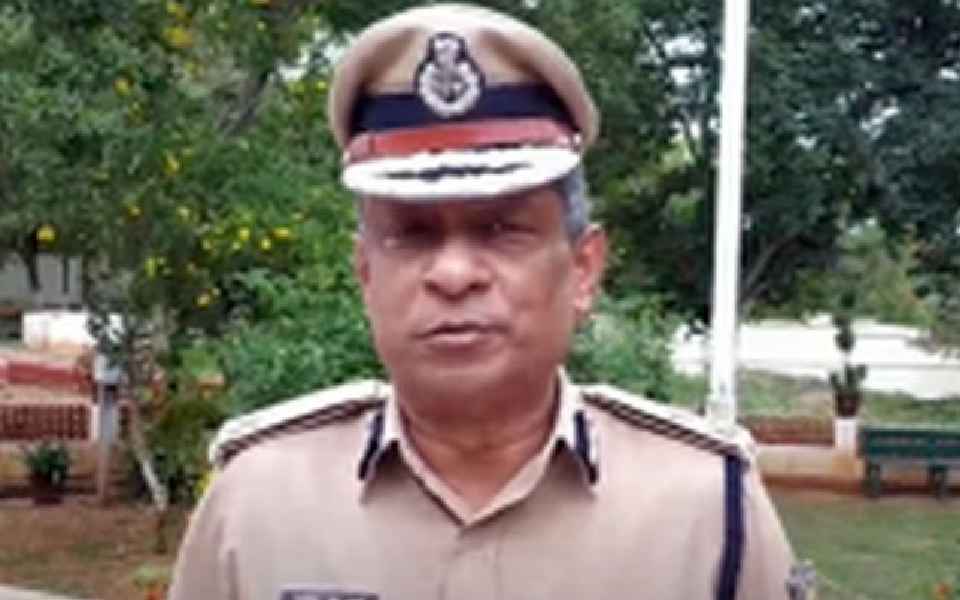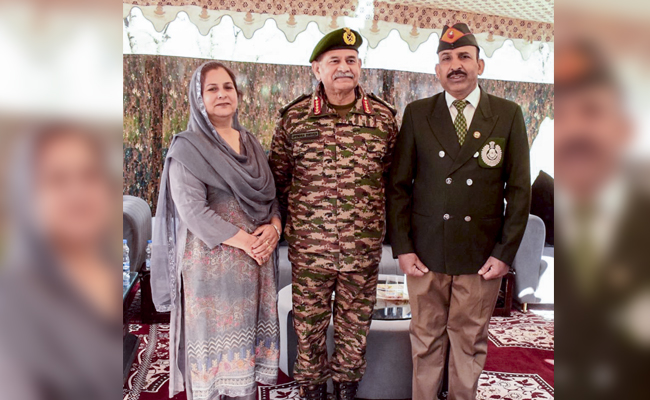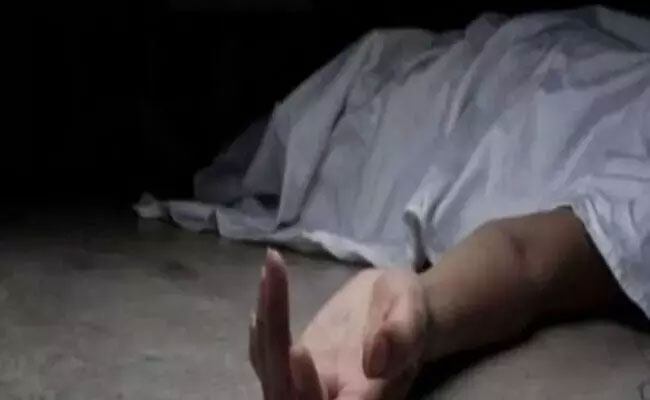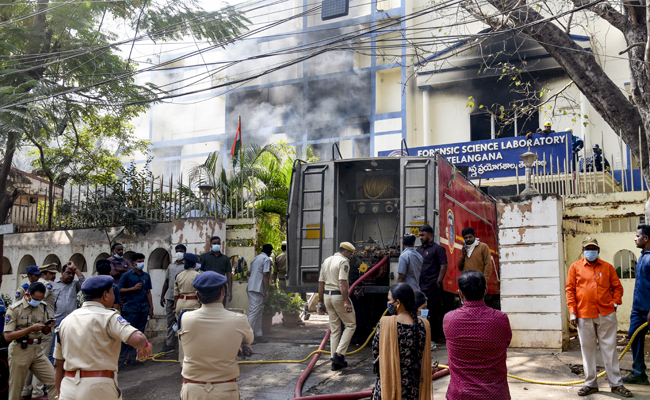New Delhi, May 24: The Delhi High Court on Wednesday upheld a central government order dismissing former IPS officer Satish Chandra Verma, who assisted the CBI in its probe in the Ishrat Jahan fake encounter case, a month before his scheduled retirement.
Verma, a 1986-batch Gujarat Cadre IPS officer, was dismissed from service on August 30 last year, a month ahead of his scheduled retirement on September 30, 2022, after a departmental inquiry found him guilty of various charges, including "interacting with public media".
Verma had approached the high court following the Supreme Court's order allowing him to file a plea here.
A bench headed by Chief Justice Satish Chandra Sharma said there was no reason to interfere with the findings returned by the inquiry authority or the order passed by the disciplinary authority when the petitioner himself has not denied the media interaction which was done without any permission or authorisation.
The interaction with media was not in the bonafide discharge of the petitioner's duties, the court observed.
"We find no merit in the writ petition. The same is accordingly dismissed," ruled the bench, also comprising Justice Sanjeev Sachdeva.
The allegations against Verma were that he interacted with public media on March 2 and 3, 2016 and, in an interview with a news channel at the official premises of North Eastern Electric Power Corporation in Guwahati without any authorisation or permission from the competent authority, spoke unauthorisedly on matters which were not within the sphere of his duties.
It was alleged that he made a statement of fact and opinion in the encounter matter which had the effect of an "adverse criticism of Central and state governments".
It was also alleged that Verma did not make it clear that the views expressed by him were his own and not that of the government.
An inquiry was conducted and it concluded that the articles of charge have been proved.
Before the high court, senior advocate I H Syed appeared for the petitioner and said the inquiry proceedings were based on unauthorised video footage purportedly downloaded from YouTube and neither the video footage nor its transcript were proved to be in accordance with law.
The Centre, represented by senior advocate Arun Bhardwaj, defended the dismissal order, saying charges were not only duly proved but the allegations have also been admitted.
The court, in its 45-page judgement, observed that the petitioner has not disputed his media interactions at any point or that he did not have any prior permission or authorisation for such interaction.
It also rejected his contention that media professionals had forcibly entered the premises and started questioning him as it noted that the video footage clearly shows the petitioner "sitting at a place with the microphone attached to his lapel and is answering questions".
"Petitioner has not denied the interaction with the media, he has also not denied that he did not have any permission or authorisation to speak to the media. He has also not denied that he did speak about the encounter and issues that were not within the sphere of his duties.
"Clearly the interaction with the media was not in the bonafide discharge of his duties as CVO, NEEPCO (Chief Vigilance Officer, North Eastern Electric Power Corporation). He also did not specify that the views expressed by him were his own and not that of the Government," the court noted.
It said at no point of time Verma disputed the contents of either the footage or the transcript.
"It is not the case of the Petitioner that the contents are doctored, edited or altered," it added.
The court also noted nothing was on record to infer that the inquiry authority did not act as an independent adjudicator but as a representative of the government.
"Clearly, this case is not the one where the findings returned by the inquiry authority are based on no evidence and the petitioner has not showed any procedural irregularity or violation of the principles of natural justice and fair play," said the court.
It said it does not find any reason to interfere with the findings returned by the inquiry authority or the order passed by the disciplinary authority.
Verma had probed the high-profile Ishrat Jahan case of 2004 between April 2010 and October 2011.
Ishrat, a resident of Mumbra near Mumbai, and three others, were killed in a staged encounter on the outskirts of Ahmedabad on June 15, 2004.
Those killed were dubbed as LeT terrorists who had plotted to assassinate the then Gujarat Chief Minister Narendra Modi to avenge the post-Godhra communal riots of 2002.
Based on his investigation report, a Special Investigation Team had concluded that the encounter was "fake".
The Gujarat High Court had later directed the Central Bureau of Investigation (CBI) to probe the case and avail Verma's services.
The apex court had on September 19, 2022 stayed the Centre's dismissal order for a week and said it is for the high court to consider the question as to whether the stay or vacation of dismissal order is to continue.
Subsequently, on September 26 of the same year, the high court had refused to stay the Centre's order dismissing Verma.
Let the Truth be known. If you read VB and like VB, please be a VB Supporter and Help us deliver the Truth to one and all.
Moscow (PTI): At least six people, including four Indians students, were injured on Saturday in a stabbing attack at a university in Russia's Bashkortostan Republic, media reports and the Indian mission here said.
According to preliminary reports, a teenager armed with a knife entered a dormitory of the State Medical University in Ufa in the Bashkortostan Republic. He attacked the students living there and stabbed several of them, the Interior Ministry said.
“The attacker resisted arrest, during which two police officers were stabbed. Furthermore, the suspect also inflicted bodily harm on himself,” Interior Ministry spokesperson Maj General Irina Volk was quoted as saying by RTVI.com webportal.
Calling it an "unfortunate incident", the Indian Embassy here said, "Several persons including four Indian students have been injured."
The Embassy said it is in touch with the authorities, and officials from the Consulate in Kazan are en route to Ufa to provide assistance to the injured students.
In a release, the Russian Federal Health Ministry said that four people injured in the attack are receiving medical care. One is in serious condition, while three others are in moderate condition, it added.
The attacker, identified as a 15-year-old youth, has also been admitted to a local children's hospital in serious condition, the Baza telegram channel said.
Authorities in Ufa, the capital of the Bashkortostan Republic about 1,200 km east of Moscow, have launched a high-level probe into the incident.
The Baza channel claimed that the attacker belonged to a banned neo-Nazi outfit.
"He belonged to the banned NS/WP neoNazi organisation. During the frenzy of attack, he was shouting nationalist slogans about (the) Holocaust,” it said and shared the photo of a Swastika drawn on a wall with the blood of the victims.
According to eyewitnesses, “there was blood all around,” Ren TV said, showing footage of wounded being taken to hospital by ambulance vans.





